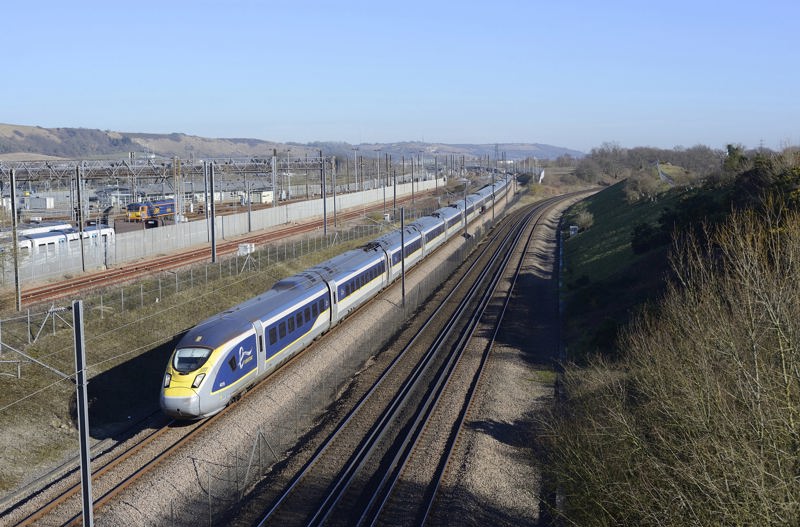
An external consultant appointed to examine capacity at Temple Mills International Depot (TMI) is set to report back to the regulator this month.

An external consultant appointed to examine capacity at Temple Mills International Depot (TMI) is set to report back to the regulator this month.
Virgin and Spanish start-up Evolyn submitted Section 17 requests in late 2024 to be allowed into Temple Mills in a bid to take on Eurostar on HS1 and through the Channel Tunnel.
Evolyn estimates keeping eight trains overnight in London and needing two workshop tracks for daily maintenance, in a ten-year agreement from April 1 2026.
Virgin has said it requires space to keep seven 200-metre-long trains overnight (five in sidings and two inside), along with two tracks in the shed for maintenance. It wants its ten-year agreement to begin in Q3 2027.
The Office of Rail and Road’s independent consultant is compiling a report which will rule if the depot can cope with units from rivals. This is set to be published a few weeks after being sent to ORR.
Eurostar has said the depot doesn’t have the capacity to stable and maintain other operators’ train, and that both forms were invalid, lack detail, and were premature. It has also raised concerns that new rolling stock would be incompatible with Temple Mills’ facilities.
Evolyn has accused Eurostar of “failing to provide any usable evidence” about the depot’s capacity.
In a letter dated December 5 2024, it said: “Eurostar has simply claimed ‘it’s difficult to see that there is sufficient capacity available to meet an assumption that we can permanently allocate two roads’.
“Given that Eurostar is the only entity using TMI, Eurostar can reasonably be expected to know the capacity of TMI with much greater certitude.”
It went on to describe the operator’s claims as “implausible, given it has announced its intention to increase its fleet by 30% by 2030”.
Evolyn’s UK Manager Marc Noaro added: “It’s a critical milestone. Without it, it becomes very difficult to see how one could run between London and Paris. If your base is in London, your operational base has to be.”
“If it’s full, how realistic is open access up to competing, without correct fundamentals at St Pancras or Gare du Nord and Temple Mills? The railway has capacity, the issues are the depot and stations at both ends.
“If one is saying there’s no capacity, one is saying it’s a monopoly.”
Virgin had been discussing TMI access with Eurostar, but talks stopped when Evolyn submitted its S17 form. Phil Whittingham, Virgin’s project lead, said he hoped Eurostar would continue to engage in talks.
Virgin is confident on space at Temple Mills being available, and said accessing the depot was “the next logical step” in its bid to launching an international service.
Whittingham dismissed suggestions that Virgin’s trains would not be compatible with the depot and space concerns, telling RAIL: “Any modern fleet these days runs at more than 80% utilisation. Eurostar should need three or four out of eight roads. We have letters of support from manufacturers.”
Eurostar, which has ordered 50 new trains, said “all the information that we’d done ourselves in terms of an internal study was shared”, and that its offer of an independent capacity study was declined in favour of taking the dispute to ORR.
It also denied trying to restrict access, saying there was limited space on the network “to meet the combined growth ambitions of everyone who is seeking to invest, including ourselves”.
A spokeswoman added: “The access challenge lies in there being sufficient capacity at Temple Mills for both Eurostar and other operators, which is the wider issue for us all to resolve together. Eurostar does exactly what is required of it on this topic and is very actively engaged and open on the topic.”
Eurostar has written to the government asking for support in creating a framework that will allow international train operators to “invest on level terms in the further network expansion we all want to see”, insisting it “welcomes the development of rail services in Europe”.
The spokeswoman added: “We have been operating in a competitive environment for years, competing with airlines, ferries and buses. We still have a common challenge with our future rail competitors - to convince more travellers to choose the train.”
Whittingham told RAIL that Virgin would be “not far off” running as many services as Eurostar, adding: “We don’t believe the route has reached its potential,” and accusing its rival of “no ambition whatsoever”.
However, he said Virgin ‘didn’t believe there is room for three operators’ on HS1.
“We’re hoping the regulator will determine what capacity is available and reserve it for a new competitor. We expect the first operator to come along with a contract for new trains will get that capacity.
“Considering Eurostar’s current timetable and Virgin’s aspirations, most of the high-speed passenger paths will be taken.”
Evolyn’s Noaro added that it would be difficult to see how both St Pancras and Gare du Nord stations “can be a lot, lot bigger”, saying it would be “challenging but not impossible” for more than one new operator to enter.
Virgin is hoping to sign a train order in the first half of 2025 and run services from 2029. Evolyn has an agreement in place with Alstom for around 12 units, although no order has been made.
Fixing capacity issues at St Pancras could pave the way for another operator to challenge Eurostar, says ticketing expert Mark Smith.
A study commissioned by HS1 Ltd found that expanding infrastructure and enhancing border security processes at the station could increase capacity from 1,800 to around 2,400 passengers per hour within four years, and a redesign of the international area could push that up further to 5,000 in the long term. HS1 itself is running at around 50% capacity.
“More capacity means more seats and cheaper fares,” Smith told RAIL.
“Competition in Italy has driven down fares. In Spain, competition is currently driving down fares.
“Rail-on-rail competition is much more effective in keeping down fares than rail versus other modes.”
Login to continue reading
Or register with RAIL to keep up-to-date with the latest news, insight and opinion.


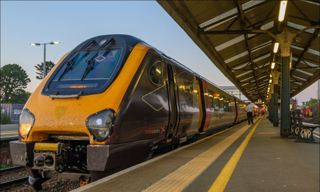
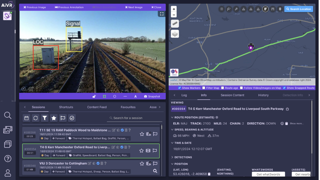
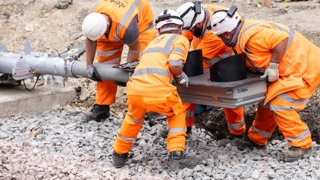
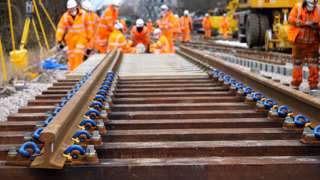











PhilD - 13/02/2025 08:53
I suppose start-ups could club together and build a new depot somewhere not far away... Then they can control who uses it. Oh, but that would mean actually spending money on assets, which seems to be an anathema to new wave wannabe operators (national as well as international).